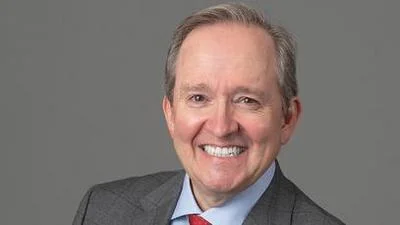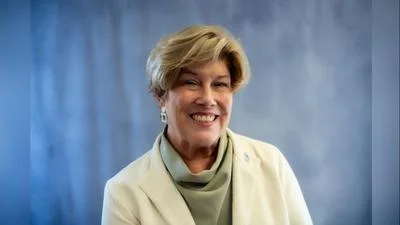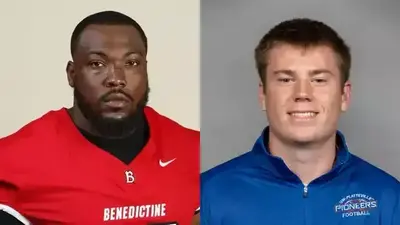City of East Peoria City Council met Aug. 20.
Here is the agenda provided by the council:
Mayor John P. Kahl called the Working Session of the City Council of East Peoria, Illinois to order at 5:00 P.M. with the meeting having been properly noticed.
Upon the roll being called the following answered present: Mayor John P. Kahl, Commissioners Daniel S. Decker, Mark E. Hill, Seth D. Mingus, and Michael L. Sutherland.
Absent: None.
Mayor Kahl explained that the City Council is meeting for a Working Session and that no formal business will be conducted by the City Council at the meeting. He explained that the purpose of the meeting is to have a Working Session regarding a Public Forum on Potential City Regulation of Cannabis and Cannabis Businesses under the recently adopted Cannabis Regulation & Taxation Act (Recreational Marijuana). He explained that the meeting will consist of a brief overview of the act followed by public comments. He explained that City Attorney Scott Brunton along with Chief Roegge and Ty Livingston would begin the meeting.
City Attorney Brunton explained an overview of the law which regulated recreational use of cannabis for anyone 21 and older in their private residence. The City cannot regulate or prohibit the recreational possession of adult- use (those 21 years of age and older) of cannabis; recreation use in private residence of those individuals 21 years of age and older; the medical possession of persons and caregivers; and the allowance of those medicinal cannabis license holders to grow up to five plants.
City Attorney Brunton explained what the city can regulate or prohibit regarding the Cannabis Regulation and Tax Act. Those regulations or prohibitions include: (1) possession of cannabis over permitted limits, by persons under 21, and in restricted places; (2) consumption in “public places”; (3) on-site consumption at adult-use cannabis businesses; and (4) adult-use cannabis businesses (licensed by the State). The adult-use cannabis businesses that will be licensed by the state are the following: (1) dispensary (point of retail sales); (2) cultivation center (grow cannabis plants – up to 21,000 ft2); (3) processor (extract chemicals/compounds from cannabis; make cannabis products); (4) infuser (make cannabis-infused products such as edibles and lotions); (5) craft grower (smaller grow operations like “craft breweries”); and (6) transporter (transports cannabis products between cannabis businesses).
Attorney Brunton explained that the act gives the city discretion to local municipalities to regulate or prohibit regulation or prohibit adult-use cannabis businesses. If the city does not completely prohibit businesses, it appears that that city could regulate several things including the location of the businesses, number of each type of cannabis business, separation from sensitive areas, among other regulations. The state did place certain restrictions on the location of dispensaries, infusers, and craft growers in the law, along with the hours of operation for dispensaries; however, it appears that the city has the ability to be more restrictive in those areas. The city can address those changes through zoning regulations.
Attorney Brunton commented on the city’s ability to impose a municipal sales tax of up to 3% on retail sales for those that have a dispensary license within the city. Attorney Brunton commented in regard to onsite consumption. Cannabis cannot be used in a “public place” which is defined by the state as any place where one could reasonably be expected to be seen by others. The Smoke Free Illinois Act still applies. The state law, however, exempts out private residences, smoke shops if an allowed use by the city, and business locations where the city wants to allow use (i.e. a wellness center that uses lotion with cannabis).
Director of Planning and Community Development, Ty Livingston, explained that if any cannabis state licensed businesses would be allowed in the city that the zoning regulations could be imposed and there would need to be an update to the city Zoning Code. These proposed changes must be first presented to the city Zoning Board of Appeals and then be presented to the City Council for adoption. Recommendations could include not permitting dispensaries in residential areas, requiring a conditional use that would require notifying neighboring property owners, a public hearing by the Zoning Board of Appeals, and City Council approval. Other zoning recommendations could include separation from other types of businesses and which businesses those might be. There is some latitude as far as zoning if cannabis state licensed businesses are allowed in the city.
Chief of Police, Steven Roegge, explained that the Police Department wants to make sure that the training dollars that are to be allocated for training are used for training officers. He explained that, whether there are dispensaries or other cannabis licensed businesses in the city, there will still be recreational marijuana in the city. He stressed the importance of ensuring that the city, specifically the Police Department, is prepared and trained to deal with any situations.
Mayor Kahl opened up the meeting to comments from the city council.
Commissioner Hill inquired about the number of licenses to be issued. Attorney Brunton explained that there will be 75 dispensary licenses on or before May 1, 2020 and then it is a staggered increase all the way up to 500 in a future date beyond May 1, 2020. It is a staggered schedule for most of the licenses. There are currently medical marijuana licenses in the state totaling 60 and those license holders have the first shot at recreational cannabis licenses. The separation of recreational does not apply to co-location of medical and recreational. However, if the business gets away from the co-location, the distance may need to be 1500 feet. Commissioner Hill inquired about whether field tests for cannabis impairment are ready. Chief Roegge explained that there are field kits; however, there will need to be regulations about their use on roadways (including approval of their use) which has not been done yet. Officers will need to be trained to pick up the signs of cannabis impairment. Chief Roegge explained that there will be a learning curve. When training in this area of impairment, it is a specific type of training and officers will need to be trained to a certain level. The idea is to use training and to keep up on a continuous basis to keep the level of expertise in recognizing signs of impairment. There are questions about what level officers need or should be trained to and if the knowledge is not kept up it will be lost.
Commissioner Hill inquired about oils and whether those are covered under the act. Attorney Brunton believes that unless there is tetrahydrocannabinol (THC) in the oil that the act does not apply.
Commissioner Mingus asked about whether licenses are broken up by district. Attorney Brunton explained that he is unsure if it will be split up by district.
Commissioner Sutherland inquired as what the 8% that the state is collecting to share with municipalities for training and the drug treatment plan. A share of the taxes is from all of the communities and Attorney Brunton has not seen any projections yet. There was a question about whether communities that do not allow recreational cannabis businesses in them will have access to the 8% share. Municipalities can impose an additional 3% on top only if the municipality allows for the sale at retail in the municipality. Attorney Brunton anticipates a trailer bill coming this fall to refine issues with the state regulations. The 8% share would be restricted for certain purposes, while the 3% of sales funds would be unrestricted.
Mayor Kahl asked for any comments from the audience.
Dennis Paluska of Shady Knolls Drive in East Peoria came up to the podium. He shared his belief that the city council has a good understanding of the law and moving forward with it. He feels that if the city does not allow a dispensary in the city, then the city will still need to deal with the situation if they buy it elsewhere.
Norman Sales came up to the podium. He does not feel that the city should profit from the bad habits of its citizens. He feels that people will pass down marijuana to underaged individuals and the city council needs to be for or against the sale of marijuana. He feels that the city should not allow the sale of recreational marijuana in the city.
Mr. Hulting of East Peoria came up to the podium. He explained that his generation started the moral decay of this society. He has never used drugs. He served in the military. He knows that the State approved the law; however, he feels that the city should not allow recreational cannabis businesses. He inquired about if someone gets called into work then what happens if someone has used marijuana. He explained that Colorado is making more money but that there are more accidents. He feels that if something is legal that people are going to abuse it. He believes that the city should make the decision like Morton and El Paso to prohibit recreational cannabis businesses and say that East Peoria is the place to be. He feels that it is ridiculous to be thinking about this.
Mr. Norbits came up to the podium. He hears that the city will share in the 8% revenue whether the city participates. It is a share in the state revenue for law enforcement training. He inquired about residential zoning. Mayor Kahl explained that zoning would be a big component of the regulation. Mr. Norbits inquired as to whether there has been a cost versus revenue determination. Commissioner Decker explained that the costs are unknown now and that whether the city allows for the sale or not, there will still need to be training. Mr. Norbits inquired as to the amount of income from the state. Mayor Kahl indicated that the amounts are unknown, and that the city will have to deal with cannabis use no matter what.
Bob Sinks came up podium and explained that there are a lot of unknowns. He discussed the training of Police and possibly Fire. He feels that it is bottomless pit and either way the city votes the city will get hit.
A gentleman came up to the podium and stated that the city should embrace the opportunity. There are shops that are closed in the city and this could provide a business where one was not previously located and provide extra money. He believes that long are the days that people are afraid cannabis. He feels that the city council will make the best decision for the city.
Commissioner Sutherland commented on friends that have passed away due to drugs. He explained that cannabis has never killed anyone that he knows of. However, he does not know of anyone that has died of a drug overdose that didn’t start with cannabis.
A gentleman came up to the podium and inquired as to whether the medical cannabis center in the city has had any additional violence or disturbances. Chief Roegge explained that he is not aware of an incidents that have occurred because of the business being opened. The gentleman explained that he began smoking cannabis when he was 18 years old and has been for 40 years. He stated that people that smoke cannabis don’t always go to harder drugs and people who smoke cigarettes are known to use drugs and drink more alcohol over those that use cannabis. The madness against cannabis use should be stopped. He explained that he raised six kids and he has a nephew that killed himself over alcohol. He asked those to come and talk to him because he has experience in using cannabis. He explained that there have been additional accidents because there are three million people living where 500,000 should be living. He explained that the city council needs to do more research. He explained that he missed four days in 11 years.
A gentleman came up to the podium and explained that the city has plenty of problems without adding to it by allowing cannabis sales. He explained that he does not drink, smoke or do drugs. A lot of people do not have common sense to adjust themselves when drinking or using drugs. Some people cannot regulate themselves and if they have another outlet then they will have another opportunity. He feels that cannabis is a gateway drug. He explained that he is 84 years old and does not smoke, drink or do drugs.
Jeff Hickerson came up to the podium. He feels that kids are going to get the cannabis either way; and, if we do it right, we can regulate it a little bit and people will know what they are getting. People have died from rat poisoning that was added to marijuana on the black market.
Mayor Kahl asked for any additional comments. There was no response.
Motion by Commissioner Hill, seconded by Commissioner Decker; Mr. Mayor, I move you that we adjourn the meeting.
Yeas: Commissioners Decker, Hill, Mingus, and Sutherland and Mayor Kahl.
Nays: None.
Mayor Kahl declared the motion carried and the meeting adjourned at 5:53 P.M.
https://www.cityofeastpeoria.com/AgendaCenter/ViewFile/Minutes/_08202019-680





 Alerts Sign-up
Alerts Sign-up